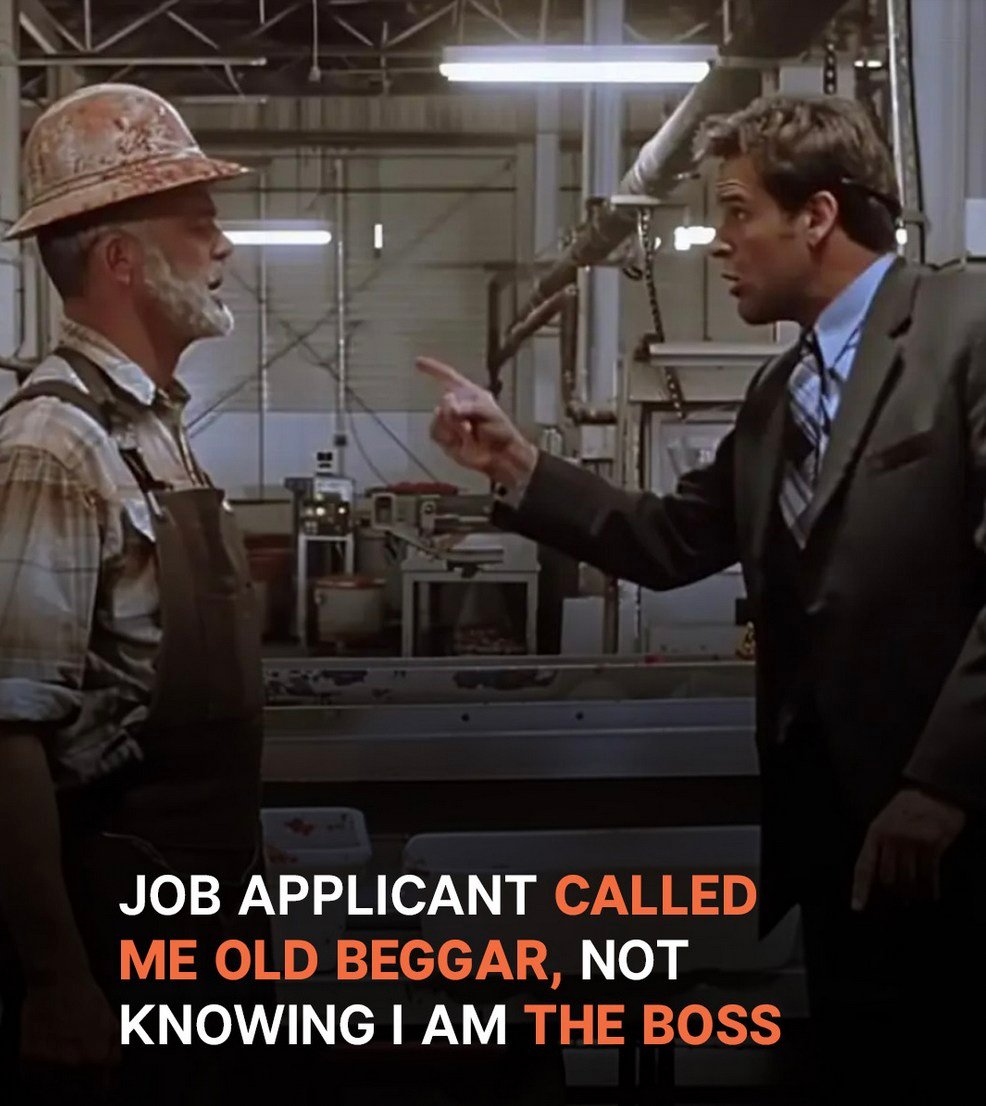A man came to apply for an executive job at a canning factory and asked a poorly dressed worker where the boss was. He had no idea he had just insulted the actual production manager, but what happened next was even more unexpected.
I wiped my forehead and walked away from the factory floor. We had a massive issue with an essential machine at the canning factory, and their current engineers couldn’t figure it out. But I knew what that machine required since I had been there the longest. So, I changed from my suit to my work clothes and got cracking.

Grease and dirt covered me by the end, but it was worth it because the machine was up and running again. We wouldn’t have to lose a full day’s work, and I was happy. I had been part of that canning company in Wisconsin for decades, and I knew almost everything. But I had worked up from a regular employee to the general manager.
Still, I would always lend a hand and get dirty when needed. I was not too proud of it. Every single job was important.
“Really? After… that back there?” Leonard asked, unsure.
However, when I walked back through the office floor, cleaning my greased hands on a wet towel, a well-dressed young man stopped me.
“Excuse me,” the young man asked, and I turned around with raised eyebrows. I saw the man visibly sneer at me. “Oh, never mind.”
“Is there anything you need? I can help you,” I offered kindly.
“Nah, man. You can’t help me. I need to speak to a higher-up,” the young man replied, shaking his head.
I sighed at the attitude but continued being polite. “Trust me. I can help you with anything. What do you need?”
“Really? Ha, I don’t think so,” the young man sneered, looking at me up and down, then he shrugged. “Fine. Hey, old beggar, where’s your boss’s room?”
My eyebrows almost reached his hairline at those words. I was so shocked someone would speak to me like that, and it was a reminder of all the other managers who had treated me terribly decades ago. I had risen over them, becoming better and more indispensable to the company. Eventually, they were all fired, and I was promoted.
I promised myself I would never treat anyone with the same attitude or look down on workers. I encouraged others to be the same way, which was why our work environment was so steady and easy.
I thought about shooing this man away but then remembered why we were interviewing young people. We truly needed someone for a specialized position, and I wanted to know more about this arrogant man.
“Who are you looking for?” I continued.
“Mr. Flanaghan,” the young man said mockingly. “Do you know him?”
“Yes… I’m Mr. Flanaghan. Come with me,” I responded and turned. I walked quickly to his office, not looking to see if the man was following. I knew he would follow.
“Sir, I’m so sorry,” the young man started, closing the door to my office.
“Save the excuses for your mother. I’m here for business. Sit down, and let’s get this interview going,” I sat behind my impressive desk and stared at the young man, who fumbled as he sat across and introduced himself as Leonard.

I nodded and started a flurry of difficult, technical questions. Surprisingly, the young man answered them. He choked a bit on his words from flustering, but his confidence eventually returned.
Even after those insulting words, I was impressed by his knowledge and experience at a relatively young age. There was something about him that made me want to know more. I saw myself reflected in the young man’s eyes with his brilliance and thirst for this profession.
But I also wanted to teach him more, like a father to a son, which was odd considering that I didn’t have children at all. Obviously, the kid had been raised with money and privilege, but I had faith. Leonard was competent and qualified, so I offered him the job.
“Really? After… that back there?” Leonard asked, unsure even after his successful interview.
“Yes. Giving second chances is one of my best qualities; I think you’ll fit in here. After some training,” I nodded, pursing my lips. “Congratulations.”
Leonard was ecstatic, and he started working quickly. I took him under my wing, showing him that being an executive in any company required more than just the skills he learned at school. He needed to be someone people looked up to. Someone workers could trust. Someone who respected everyone who worked under him.
And although some of Leonard’s first words to me were insulting and demeaning, the young man proved his worth. When I retired decades later, Leonard took over, and I knew the company would be alright in his hands. I had taught him everything I knew, like a father to his son.



